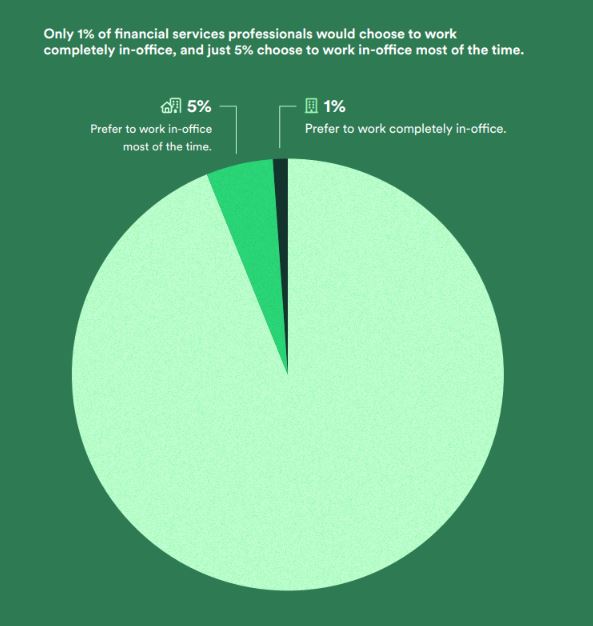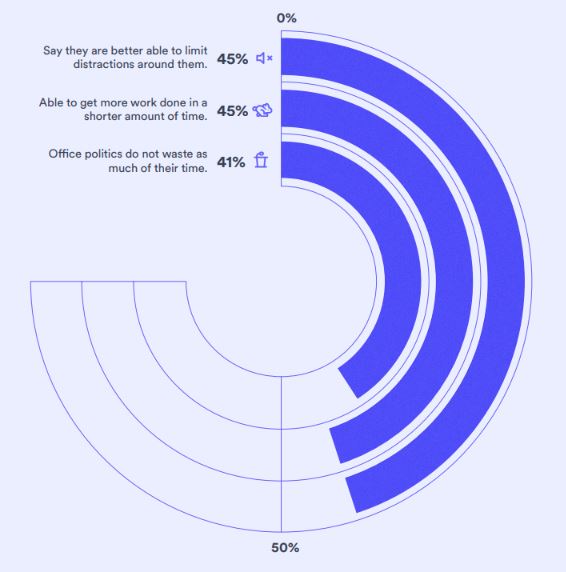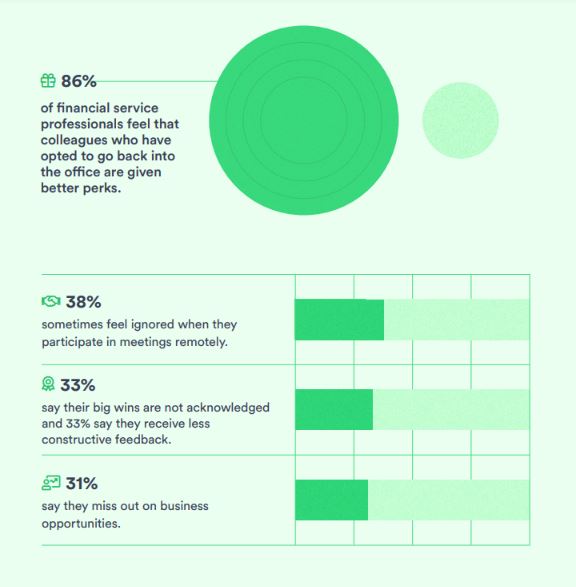96% of finance workers would take a pay cut to work from home
Would you do the same?
Why You Should Care
Many large financial institutions are anti-remote working.
But their employees disagree and believe they are more productive from home.
Learn more about the future of work in finance from Vidyard's study.
Some parts of the financial services sector have been very anti-long-term remote working.
Notably Goldman Sachs CEO David Solomon referred to remote working beyond the pandemic as an “aberration”, while J P Morgan’s CEO Jamie Dillon has repeatedly emphasized that employees will be back in the office five days a week post-pandemic.
However, a study of more than 500 financial professionals by Vidyard found that the views of top level executives are out of touch with worker views.
Only 1% of the North American workers surveyed said they would return to the office full time; 5% said they would return most of the time.

Credit: Vidyard’s The Future Of Work in Financial Services: Remote or In-Office?
Further to this, 96% of the finance workers told Vidyard they would take a pay cut to permanently work from home. The average pay cut was 37% of their salary, but 30% said they would take a 50% or more cut, while two in five said they would take a cut of between 25% and 50%.
In addition, 97% said they would give up one or more benefits, with 38% citing health insurance as their benefit of choice.
Central to the working from home preference is productivity gains. 88% noted they had had more success working remotely, compared to working in the office pre-pandemic; this rose to 91% for sales, marketing and HR teams and dropped slightly to 77% for client service teams.

Credit: Vidyard’s The Future Of Work in Financial Services: Remote or In-Office?
40% were worried that returning to the office would see their productivity decline, while 38% thought returning to the office would create more stress and 31% thought it would make them less satisfied in their jobs.
82% further said that their organizations were more productive while working from home during the pandemic.
Be intentional about hybrid working
While financial professionals may be more productive working from home, they are worried about what the future of work might look like, especially if their organizations implement hybrid models.
86% are worried about missing out on opportunities and perks at the office. This stems from how they feel their big wins haven’t been celebrated while working from home (33%) and that they were getting less constructive feedback during the pandemic (33%).
A particular concern is around meetings. Although 37% said they successfully led a meeting while working remotely, 38% noted they feel ignored when participating in meetings from home.

Credit: Vidyard’s The Future Of Work in Financial Services: Remote or In-Office?
Therefore, to avoid any kind of proximity bias where employee location (rather than skill or competency) determines promotions, it is important that employers are intentional about their hybrid working policy.
Managers need to make sure those working remotely are included in meetings, as well given all the same learning and other opportunities available to those in the office.
This is particularly important amid the ‘Great Resignation’ where employees are voting with their feet to leave organizations that are not listening to their needs and providing the right development opportunities.
Talking about the findings, Vidyard VP of marketing Tyler Lessard commented: “It’s more important than ever for leaders to listen to their employees.
“The last 18 months have taught us that employees with the right technology can produce great results no matter where they work, while flexible working arrangements are vital to employee retention and satisfaction.”
Sign up to the UNLEASH Newsletter
Get the Editor’s picks of the week delivered straight to your inbox!

Chief Reporter
Allie is an award-winning business journalist and can be reached at alexandra@unleash.ai.
